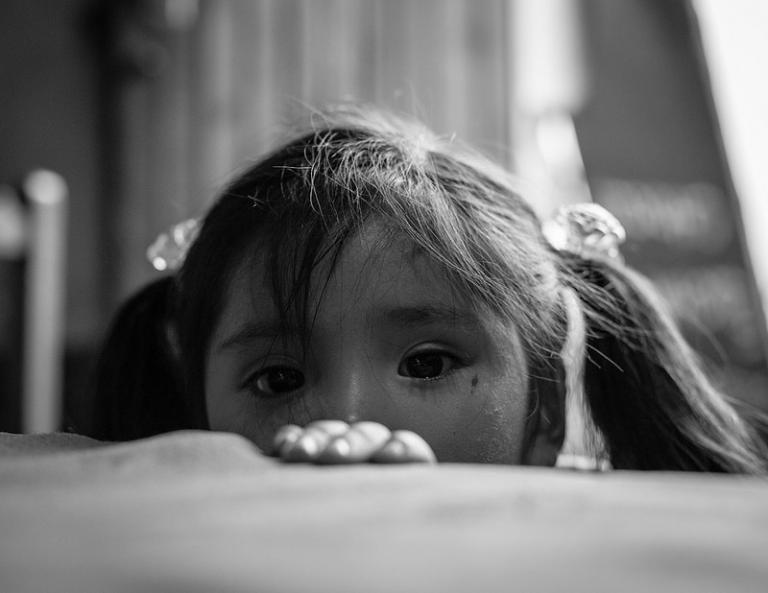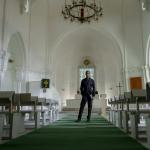If we are not going to leave the children out in this new world of necessary mediated worship, we must engage in extremely creative, barrier-breaking holy thinking.
Remember the novel coronavirus crisis will leave both church and society forever changed. Nothing will ever be the same again.

I wrote much of what is below years ago, but never, for some reason, hit the “publish” button. However, in light of what is happening in the US right now, and my real concerns about whether the church will survive this necessary move away from physically gathering together, I decided to give it a fresh edit and send it out.
My growing concern: the necessary move to electronic worship will leave the children out.
What I wrote then:
One night, at the church I was serving as the pastor, we had a great jazz band, members of our congregation, perform a concert. Everyone had a fabulous time, loving both the expertise and interaction with the musicians. While we may have been audience, we were also participants in the evening’s pleasure.
One can always, of course, just purchase a CD or download recordings of favorite music by favorite musicians and listen to them at will. But the live performance brings something so much more than convenient recording. To listen to music in the presence of others means we add their reactions and responses to our own.
The experience flowers more beautifully for the connection. Passivity recedes, the present moment fills the space, pushing away distractions and enhancing centeredness.
TV, recordings, on-demand entertainment, enjoyed solo or with only a few others, certainly can deliver pleasure and distraction. However, they keep the viewers at a distance from the real event.
Watching a game on TV may mean a far better view of the playing field and great close-ups of individual athletes, but rarely will a TV-viewed game (unless perhaps viewed with dozens of friends) lead to the exhilaration of the real thing, especially when it is a closely fought finish with all the fans cheering wildly or groaning at a missed pass or blocked goal.
At a live game, those in the grandstands become part of the action; the victories and defeats more touchable and memorable.
I know this is why I have an aversion to both TV preachers and to piped-in sermons to remote venues. Yes, the experience may be more professional, more expertly delivered, but it is also removed.
Worship is a communal activity. When I announce, “The Lord be with you,” the congregation responds with one voice, “and also with you,” it reminds us all that we do this together. Some may lead, some may respond, but we’re in this as a community learning how to worship with one another.
Recordings of musical performances, particularly with current technology, can eliminate most errors in performance, and reduce extraneous sounds or other things that might distract.
Live concerts, however, must recognize the possibility that humans do not always perform perfectly, and that other members of the audience can make sounds or movements or comments that may disrupt the focus.
I think that is part of the tendency to move to more professional worship services–eliminate the possibility of human error, control more tightly the environment.
I just wonder if we have lost more than we have gained. Having to sit in worship next to someone we may not especially like, or who may have a restless child in tow, or who wears too much perfume or not enough deodorant can seem like a distraction from the main purpose, the worship of God. And yet, to intentionally embrace the other, to look past the irritant into the soul, may open the door to much more powerful, more real, more present worship.
To have to wait on the reader to find the passage, to have to focus for twenty or thirty or forty minutes on a message sometimes delivered without professional polish, to have to sing with the clueless tuneless–all these teach us patience and compassion. Or at least, ideally, they do.
Just about everyone expects God to be patient with us, and to look upon us with compassion. Could not the experience of live, imperfect, occasionally uncomfortable worship do the same for us?
The more technology intertwines with our lives, the more mediated and less direct our experiences become. FaceBook, not face-to-face. Twitter snips, not full, lengthy, thought-provoking articles. Projected perfection, not occasionally stumbling worship leaders.
God removed, safe and controlled, not God present and us on our knees before the Holy One, full of glory.
I’m not sure this is real progress.
What do I fear now? We will leave the children out.
And now, in the midst of the novel coronavirus crisis that is certainly going to worsen and will likely mean a prolonged absence from anything looking like “normal” worship? It’s distance; it’s the mediated reality; it’s solitary worship, or it’s nothing.
I retired 5 1/2 years ago. Some of my most beautiful memories of worship involve the children, and we had so many of them, eagerly getting their after-worship “Dr. Christy” hug.
I remember beautiful faces, solemnly turned up toward me as I present to them the Body of Christ in the communion bread, torn from the common loaf. I touch each child, loving them with every ounce of my being. It was face-to-face, touch-to-touch. Delight exchanged, memories of glorious church and the love of Jesus engraved on their brains.
I weep for the loss here. And it must now necessarily be that loss.
So now, what to do? How can we put those memories into the souls of the children? It must happen now within the family gatherings. Parents will now need to become worship leaders, sitting with their children on Sunday mornings, teaching them, being empowered by the church at large to consecrate the elements of Holy Communion. It is one option.
If we are not going to leave the children out in this new world of necessary mediated worship, we must engage in extremely creative, barrier-breaking holy thinking. Remember this crisis will leave both church and society forever changed. Nothing will ever be the same again.

Don’t leave the children out. Don’t let them see a “closed” sign on church doors. Consider those little ones, still in that tender age where they more freely see and feel the Holy Presence in their innocent souls. We must find ways for them to experience that kind of enfolding love.
My prayers are all over those in active church and pastoral leadership. Nothing you have done before will work now.
Yet, the church can do this. God has called us to this very task, and, together, in our apartness, we can figure this out.
Photo credit: Photo credit: Geraint Rowland Photography on VisualHunt / CC BY-NC
Photo credit: Geraint Rowland Photography on VisualHunt / CC BY-NC
















